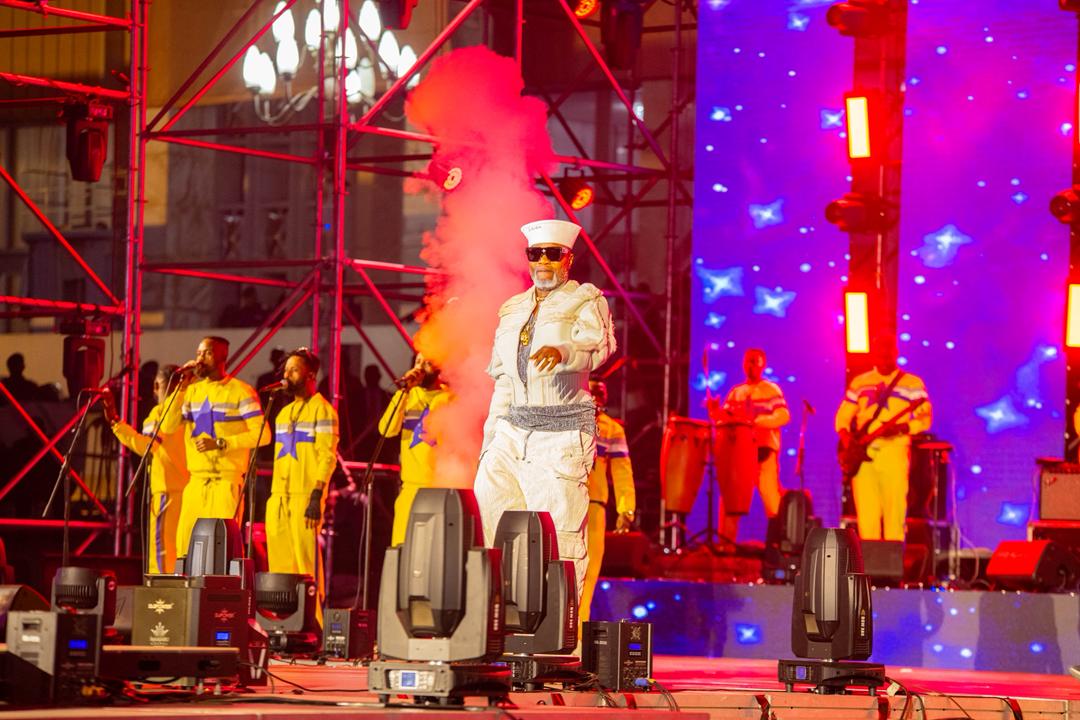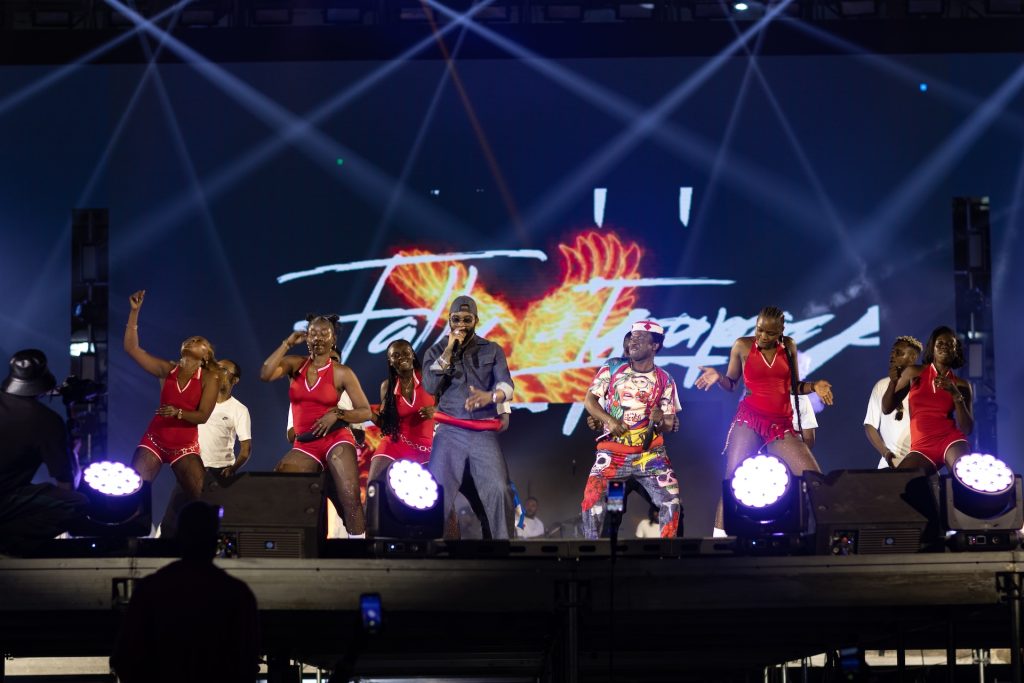The Democratic Republic of the Congo brought the curtain down on its historic World Music and Tourism Festival on Friday night with a headline performance by musical icon Koffi Olomide. The concert, held at the forecourt of the People’s Palace, marked the artistic finale of a three-day event that fused cultural celebration with strategic dialogue on tourism and creative industries.
The final night featured performances from Angolan legend Sam Mangwana, alongside Jacques Tshimankinda, René Lokwa, RJ Kanyera, and others. A special fashion interlude showcased the country’s emerging design talent, placing fashion alongside music as part of the DRC’s wider cultural economy.
Olomide’s entrance, heralded by a powerful prelude from lead backing vocalist and collaborator Cindy Le Coeur, was greeted with thunderous applause. His set, lasting over an hour, blended live instrumentation, choreography and Rumba classics to deliver a fitting climax to a festival that had already captured the city’s imagination.

Koffi Olamide in Action
The festival’s artistic programme spanned three evenings, with performances from over 40 musicians including Fally Ipupa, Werrason, Zaiko Langa Langa, Mbilia Bel, Innos’B, and DJ Queeny. Concerts drew thousands of attendees, while the adjacent Cultural Village remained a daily hub of fashion, cuisine and craft, celebrating the diversity of Congolese culture.
But the event’s impact extended beyond the stage.
Held under the theme “The Rumba Route for Peace,” the festival was launched by President Félix Antoine Tshisekedi Tshilombo in the presence of UN Tourism Secretary-General Zurab Pololikashvili, and Secretary-General-elect Shaikha Al Nowais. In addition to musical performances, the programme featured high-level roundtables and masterclasses exploring music’s role in destination branding, intellectual property, digital transformation, and youth empowerment.
Sessions such as “Transatlantic Rhythms for Peace,” “Fair Play,” and “From Vinyl to Viral” brought together stakeholders from across Africa, Latin America and Europe – including representatives from WIPO, ARIPO, UNESCO, and Sony Music Entertainment.

For the DRC, the festival was an opportunity to shift global perception and position the country not only as a cultural powerhouse, but as a creative and tourism destination. It demonstrated the country’s ability to host large-scale international events and opened conversations on how music can serve as a catalyst for both economic development and peacebuilding.
As the lights dimmed on the final concert, the sentiment was clear: the World Music and Tourism Festival had done more than entertain – it had inspired. And for Congo, it marked a bold step forward on the path to redefining itself through the universal language of music.
Sompaonline.com

